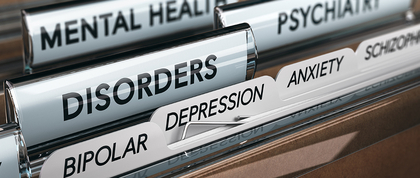
Mental health conditions/difficulties are highly stigmatized, yet are relatively commonplace. Many of us know or have had contact with at least one person with a mental health condition/difficulty during our lifetimes. While contact can come in many forms, family history is a potentially important way in which we may be exposed to mental health difficulties from an early age.
Family history has been well-researched as a factor that increases risk for developing a mental illness, including psychosis and schizophrenia. However, family history may impact individuals beyond genetic or environmental risk, affecting their perceptions of mental health and any associated stigma.
Studies show that contact with mental illness often aids in reducing the highly pervasive stigma that persists around mental illness. However, this research was frequently conducted among the general public or with students and so, to date, we know little about how family members with mental health conditions/difficulties might impact those who are at risk to develop psychosis—an important group from a public health perspective.
Exposure to mental health conditions/difficulties through family history, whether in person or through stories told, may be a particularly important factor in how young people who are at risk for psychosis come to think about what having a mental health condition means to them.
My dissertation sought to better understand whether and how a family history of mental health conditions/difficulties may impact perceptions of mental health, including stigma. Overall, I found that a presence of family history has positive impacts on individuals (i.e., participants endorsed being less secretive around the “at-risk for psychosis” label for those with family history, and more experienced support was reported).
However, qualitative analyses also revealed the nuanced ways in which participants spoke about their exposure to family history, and the impacts on their views about treatment and help-seeking, risk of future mental illness development, and how people with mental health conditions are treated.
May is Mental Health Awareness Month, and this past year has been particularly hard for many people. Mental health conditions/difficulties are common, and in our society we often learn more negative notions of what it means to be diagnosed. Battling both the stigma and symptoms of mental health conditions may be debilitating, and as public health professionals it’s imperative that we combat the stigma that permeates our society.
By gaining a better understanding of how stigma about mental health may be influenced (i.e., through family history exposure), especially among youth/young adults who are already at-risk for mental illness, we can hopefully reduce stigma and increase help-seeking. I hope this initial research will spark interest and lead to the development of more targeted stigma interventions. Perhaps better methods to engage families in positive and productive ways will improve long-term outcomes among those at risk for psychosis.

Drew Blasco, PhD, MA
NYU GPH Class of 2021